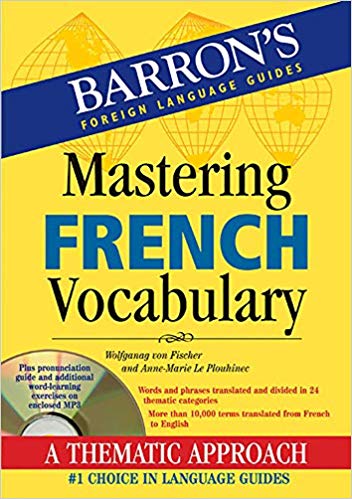Mastering French in One Year
Getting Started
Moving to France
The first and most important step is to drop everything and move to France. Do not stay in Paris as you risk socializing only with English speakers - this will sabotage your learning. Choose a town in northern or central France instead, where the regional accents are easier to understand than in the south.

Immerse Yourself from Day One
Start watching French movies and TV shows on Netflix from your first day, with French subtitles. Pause after each line to look up unfamiliar words. This tedious process allows you to learn vocabulary in real context from native speakers. Always have three essential books - a French grammar guide, dictionary, and verb book like “501 French Verbs”. Get comfortable with basic verbs like “être” (to be) and “avoir” (to have) straight away.
Practicing with Native Speakers
Speak Only French from the Start
Go out every day and practice speaking with locals. Many learners stick to books or read newspapers without speaking, but real conversations are essential. When people try to switch to English, insist firmly on practicing French. Say you are learning, not from an English-speaking country.
Mine Locals for Vocabulary
See every French person as an expert - ask them to explain anything you don’t understand. Drill them with questions about new words, their meanings, and differences between similar terms. Wear people out getting feedback; natives are your best resource for improving quickly.
Master Basic Grammar Rules
Study the gender of every new noun, like “le couteau” for knife and “la cuillere” for spoon. Learn the top verb tenses used daily, not archaic ones. Sit with a native and highlight which tenses appear most in real conversations.
Overcoming Mental Hurdles
Stop Translating in Your Head
Look at an object like a knife and say just “le couteau” without the English in your mind. Become a method actor thinking only in French. Dropping translation allowed me to progress rapidly.
Imitate Native Pronunciation
Listen closely and mimic how locals say basic phrases, like the casual “shwee” for “je suis” instead of the textbook version. Spotting novices who still use formal “nous” instead of the common “on” shows who has really internalized real conversational French.
Stay Motivated Through Difficult Times
You will want to quit when frustrated - remember this one year of struggle leads to a lifetime of bilingualism. Appreciate language learning’s benefits to your mind and cross-cultural understanding. Persevere through challenges to achieve mastery.
Reinforcing Gains
Review Progress Regularly
Once settled, set aside time weekly to assess strengths and weaknesses, like reviewing verb forms or revisiting tricky grammar concepts. Maintain vocabulary through continued media consumption and conversations.
Consider Post-Learning Immersion
After a year, choose intensive French courses or a daily job involving only French. Total immersion seals in gains from the initial challenge and fuels advanced proficiency. You may also integrate into local communities through shared interests or volunteering.
Stay in France Long-Term if Possible
For the fullest benefits, remain residents as ongoing everyday practice completes acquisition. Visits home risk backsliding if you cannot maintain regular French use afterward. One year kicks off the journey - the real commitment spans a lifetime as your new linguistic identity evolves.
With intense focus and full commitment to surrounding yourself in French culture and interactions, anyone dedicated to learning can achieve fluency within a year or less. Staying in the country long-term further enriches your bilingual skills and cultural awareness for years to come.
